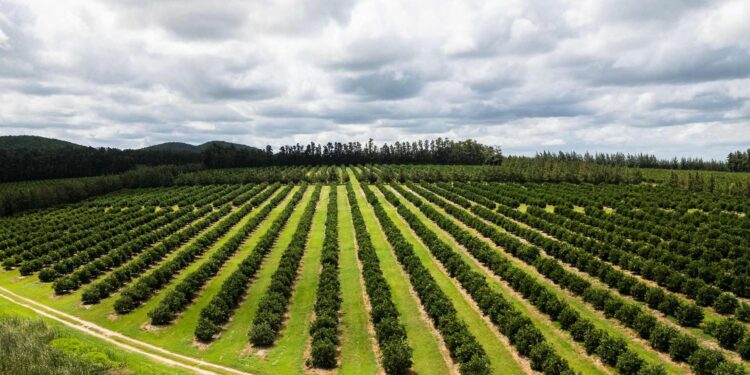The South African citrus farmers Association warned today, Tuesday, that the new customs duties imposed by US President Donald Trump may have severe damage to the local citrus sector, and about 35,000 jobs are at risk, at a time when the country’s farms began mobilizing citrus shipments directed to the American market.
According to a report published by Reuters, the American fees announced on April 2 include a 31% tariff imposition on US imports from South Africa, as part of a 10% basic tariff on all imports, in addition to higher fees targeting dozens of other countries.
$ 100 million annually at stake
South Africa is the second largest citrus source in the world after Spain, and it exports between 5% to 6% of its production to the United States, at a value exceeding $ 100 million annually.
“The new fees will add a cost of $ 4.50 to each citrus box, which will significantly weaken the competitiveness of South African fruits in the American market,” said the Citrus farmers Association in a statement.
The president of the association, Great Van der Meroy, added: “The intensity of the new fees and their immediate nature may mean that the towns like Citrosdal in the Western Keiber region, which depend largely on citrus exports to the United States, are facing either an increase in unemployment or even a complete economic collapse.”
Claims for urgent government intervention
The farmers called on the South African government to “give priority to start immediate negotiations with the United States on reducing fees or exempting citrus from them,” stressing that the beginning of the export season makes rapid intervention necessary to avoid huge losses.
Despite the possible damage, the South African government confirmed that it will not respond with retaliatory measures against the United States, which is the second largest trading partner after China. Instead, I pledged to seek customs exemptions or shares agreements.
The government also indicated that the new Trump fees “have already nullified the privileges that African countries enjoyed under the law of growth and opportunities in Africa (Arian),” an American commercial program that gives African countries that are qualified for fees to the American market, and is scheduled to end next September.
While attention is turning to the future of this vital sector, it appears that the American drawings have placed farmers and the South African government in front of a very difficult economic and diplomatic test.



